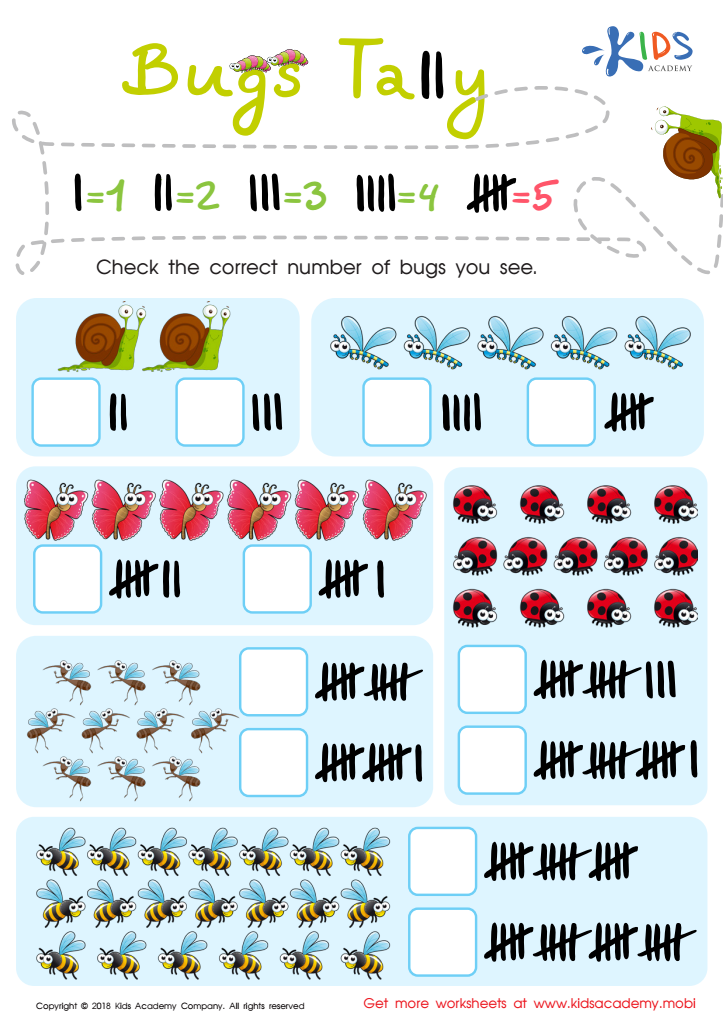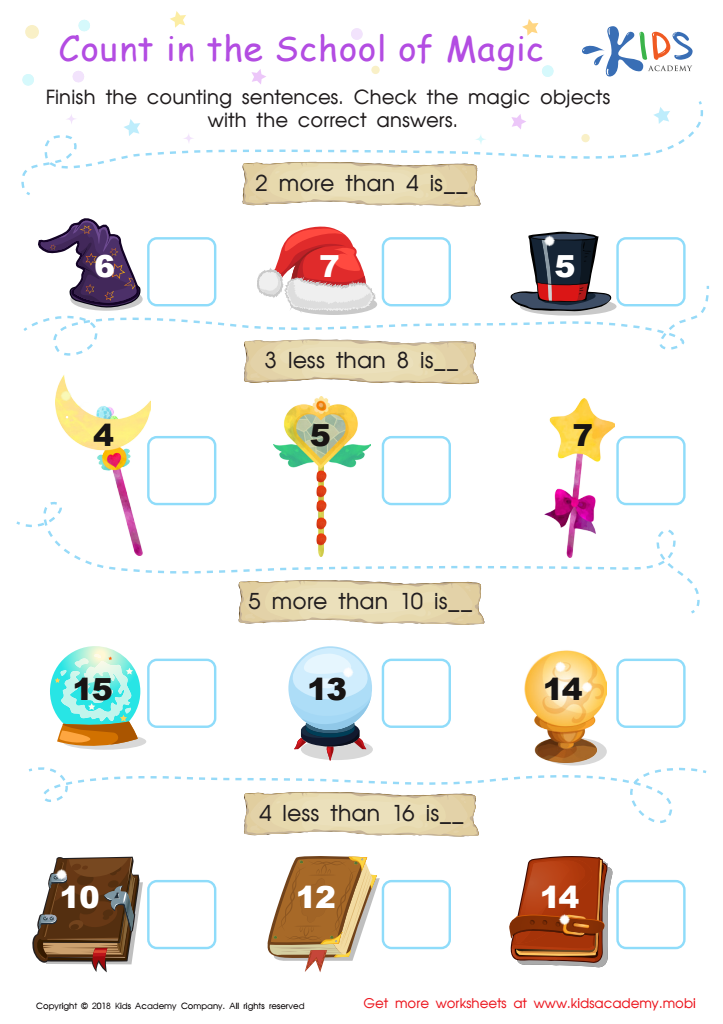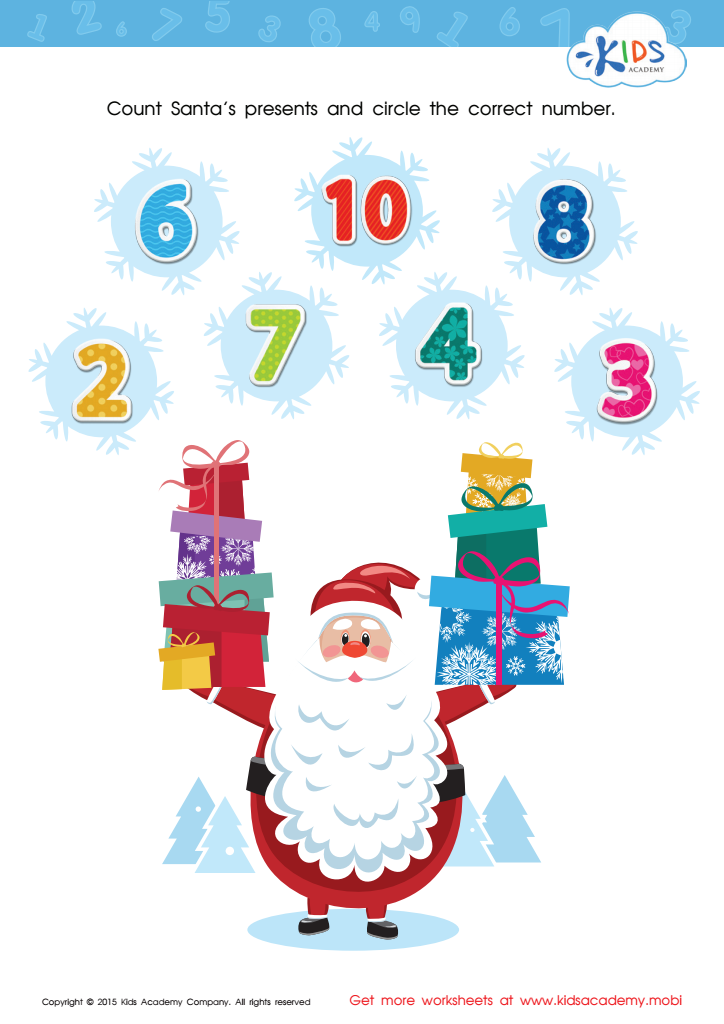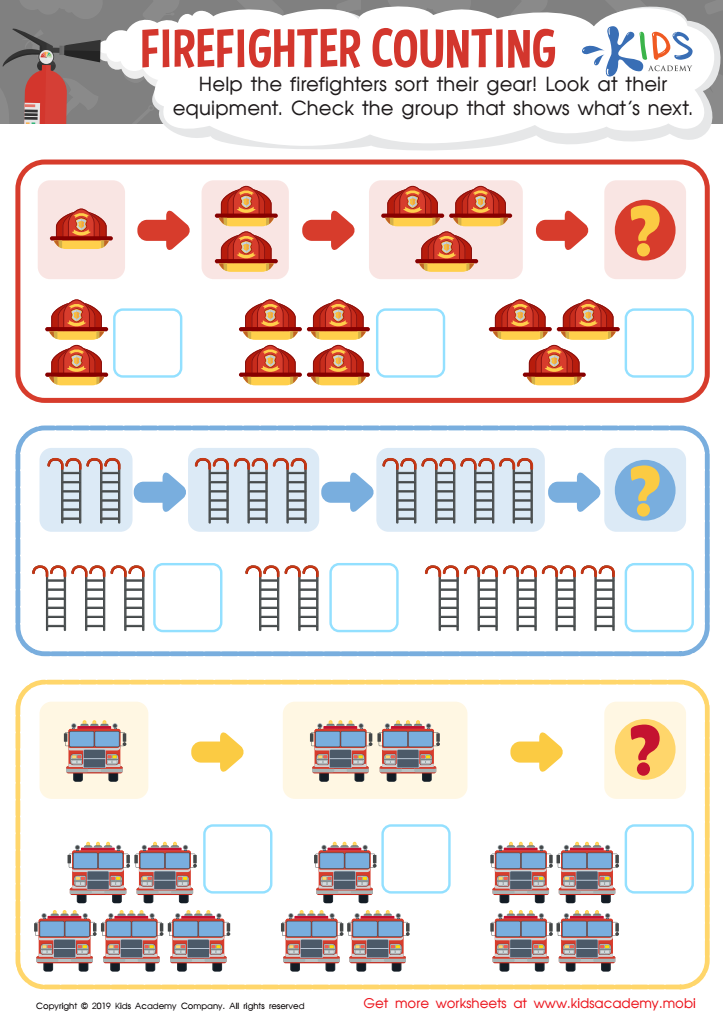Observational skills Numbers Worksheets for Ages 6-9
5 filtered results
-
From - To
Enhance your child's observational skills and number recognition with our expertly designed worksheets for ages 6-9. These engaging resources help young learners sharpen attention to detail, critical thinking, and counting abilities. Each worksheet features fun activities and vibrant images tailored to capture children's interest while covering essential math concepts. Perfect for both classroom and home use, these worksheets support developmental milestones in numeracy through interactive practice and progressive challenges. Empower your child to excel in math with Kids Academy’s palpable learning aids, fostering a love for numbers and building a strong foundation for future mathematical success.


Bugs Tally Worksheet


Count in the School of Magic Worksheet


Party Arrays Worksheet


Count Santa's Presents Worksheet


Firefighter Counting Worksheet
Observational skills in the context of numerical understanding are crucial for children aged 6-9 as these foundational years set the stage for their future academic success and cognitive development. When parents and teachers nurture observational skills, they are helping children develop the ability to notice and interpret patterns, sequences, and relationships in numbers, all of which are foundational for mathematical proficiency.
Children in this age group are transitioning from basic counting to more complex arithmetic operations. Observational skills empower them to link real-life experiences with abstract numerical concepts. For instance, understanding quantities, comparing numbers, and recognizing arithmetic patterns are all skills sharpened through careful observation.
In the classroom, teachers who emphasize these skills can create more interactive and engaging learning environments. Hands-on activities like sorting games, number scavenger hunts, and pattern creation not only make learning fun but also deepen children's conceptual grasp. For parents, fostering these skills can involve simple yet enlightening activities at home such as cooking together (measuring ingredients), shopping (calculating costs), or playing board games that require counting and strategy.
Moreover, strong observational skills are not just beneficial for mathematics but also contribute to enhanced problem-solving abilities, attention to detail, and critical thinking. Investing time in developing these skills early on equips children with tools for lifelong learning and adapts them better to tackle more complex subjects as they grow.
 Assign to My Students
Assign to My Students





.jpg)













